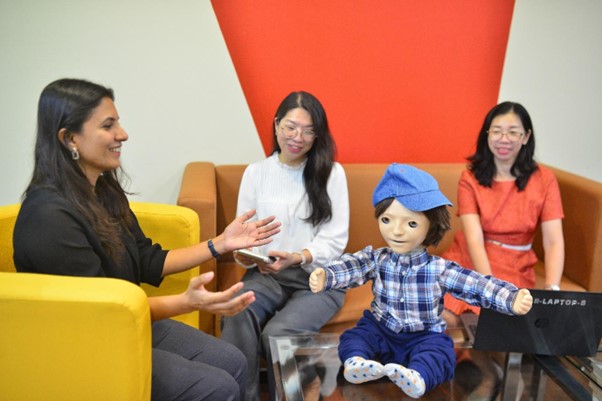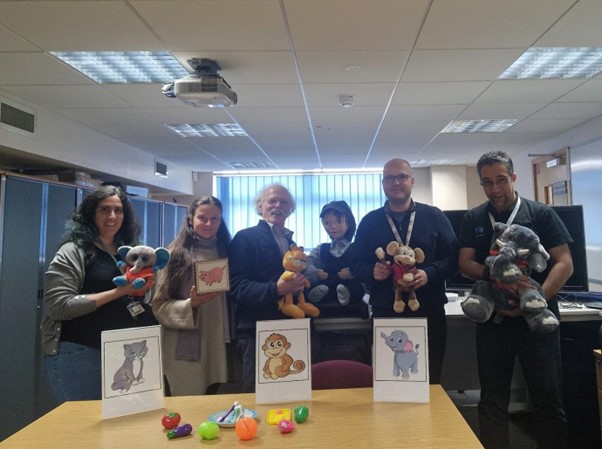Kaspar – a Humanoid Robot for Autism Spectrum Disorder (ASD) Children is Piloted in Malaysian Schools by a Team of MMU and University of Hertfordshire Researchers
Dr. Goh Mei Ling from the Faculty of Business is leading a team of MMU researchers in piloting the use of Kaspar – a humanoid robot developed by the University of Hertfordshire’s Adaptive Systems Research Group in supporting the educational needs of children with ASD in Malaysia. It was introduced in 2005 by Professor Kerstin Dautenhahn and her team. Kaspar, the brainchild of Prof. Kerstin Dautenhahn and her team in the UK is designed based on simplicity – with a neutral expression and limited facial features to avoid overwhelming ASD children.
Autism spectrum disorder (ASD) is a neurodevelopmental disorder that results in differences in social communication and restrictive, repetitive patterns of behaviour that has seen an increase in diagnosis in Malaysia with a total of 589 ASD-diagnosed children in 2021 compared to 562 in 2020 (NST 2023). Once a child is diagnosed with ASD, it is exigent that early treatment and intervention programmes are initiated because if these are initiated later, it may be a challenge to foster their skills and learning. In view of this, the Kaspar project is timely as it will aid teachers and therapists in their interventions of ASD children in Malaysia.
For the Malaysian pilot project, Kaspar has been programmed to communicate in local languages – Bahasa Malaysia and Chinese, in addition to English to reduce communication barriers when deployed in Malaysian schools. Kaspar is programmed to engage in repetitive behaviours and activities commonly used in therapy sessions for ASD children, such as turn-taking games, imitation tasks, and social interactions. In addition, its movements are deliberately slow and predictable to provide a calming and predictable environment for the children.
Dr. Goh Mei Ling, Ms. Nun Shwu Huey and Ms. Sharmila Rani Moganadas from MMU together with Dr. Patrick Holthaus from the University of Hertfordshire embarked on the initial pilot experiments in SJK (C) Bukit Beruang, SK Kampung Tun Razak and SJK (C) Ting Hwa in March and April 2024. This collaborative research project which is the first to feature the University of Hertfordshire’s Kaspar in Asia will provide tangible impact to the Malaysian ASD children and be an enabler for new technological approaches in managing ASD amongst children such as the use of humanoid robots in the Malaysian educational setting.
Whilst the project is still at its early stages in Malaysia, the positive impact and acceptance of Kaspar by ASD children is encouraging for the international research team. The collaborative effort by the MMU researchers with the University of Hertfordshire’s Adaptive Systems Research Group in the UK is a testament to how innovations such as Kaspar is transforming our society globally.
Find out more at:


